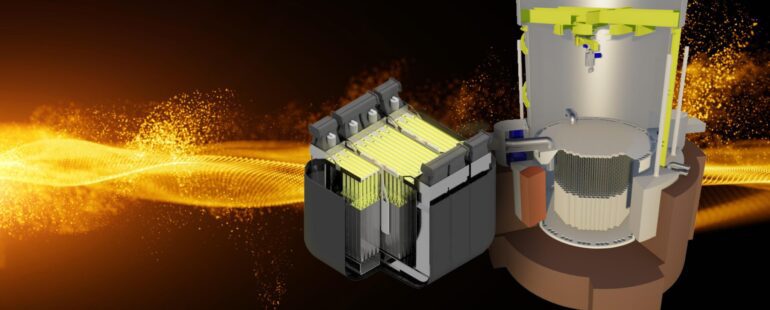TL;DR:
- Microsoft aims to use small modular reactors (SMRs) to power AI training, addressing the energy-intensive process.
- SMRs offer cost-effectiveness and adaptability but pose challenges in design, uranium fuel sourcing, and nuclear waste storage.
- Microsoft explores nuclear fusion through a power purchase agreement with Helion.
- Despite the hurdles, Microsoft remains committed to innovation and sustainability in AI.
Main AI News:
In the ever-evolving realm of artificial intelligence, the pursuit of innovation is relentless. However, it comes at a hefty price, one that has long been associated with a substantial carbon footprint. The colossal energy demand required to train large language models and maintain data centers has raised concerns about greenhouse gas emissions. As a solution to this energy-intensive challenge, Microsoft is embarking on a groundbreaking endeavor: harnessing the potential of small nuclear reactors.
Small Modular Reactors (SMRs) are at the heart of Microsoft’s audacious plan. These compact power sources offer a more cost-effective and adaptable alternative to traditional nuclear power stations. In a promising turn of events, the US Nuclear Regulatory Commission recently approved a design by NuScale Power, an Oregon-based nuclear reactor company, fueling momentum for the SMR concept.
Nonetheless, Microsoft faces a series of formidable obstacles on its path to nuclear-powered AI. The first hurdle involves securing a viable SMR design. Additionally, the acquisition of highly enriched uranium fuel, a necessity for these reactors, poses another challenge. Moreover, the company must devise a sustainable solution for the long-term storage of nuclear waste, a critical environmental concern.
Although Microsoft founder Bill Gates initiated TerraPower, an incubator dedicated to SMR designs, no agreements currently exist for reactor sales to Microsoft. This underscores the complexities of the venture.
Not content with merely exploring nuclear fission, Microsoft is also delving into nuclear fusion—a pursuit marked by decades of extensive research. A notable development on this front is Microsoft’s power purchase agreement with Helion, a fusion startup founded by OpenAI CEO Sam Altman. This agreement aims to secure a source of electricity from Helion by as early as 2028.
In the meantime, Microsoft faces substantial power and water expenses. As the excitement surrounding AI continues to swell, these costs are poised to escalate further. The company’s commitment to innovation and sustainability remains unwavering, as it seeks to power the future of AI through groundbreaking energy solutions.
Conclusion:
Microsoft’s pursuit of nuclear-powered AI signifies a strategic move to address the energy demands of AI training while aligning with sustainability goals. The adoption of SMRs and exploration of nuclear fusion demonstrates the company’s commitment to pioneering energy solutions in the competitive AI market.

